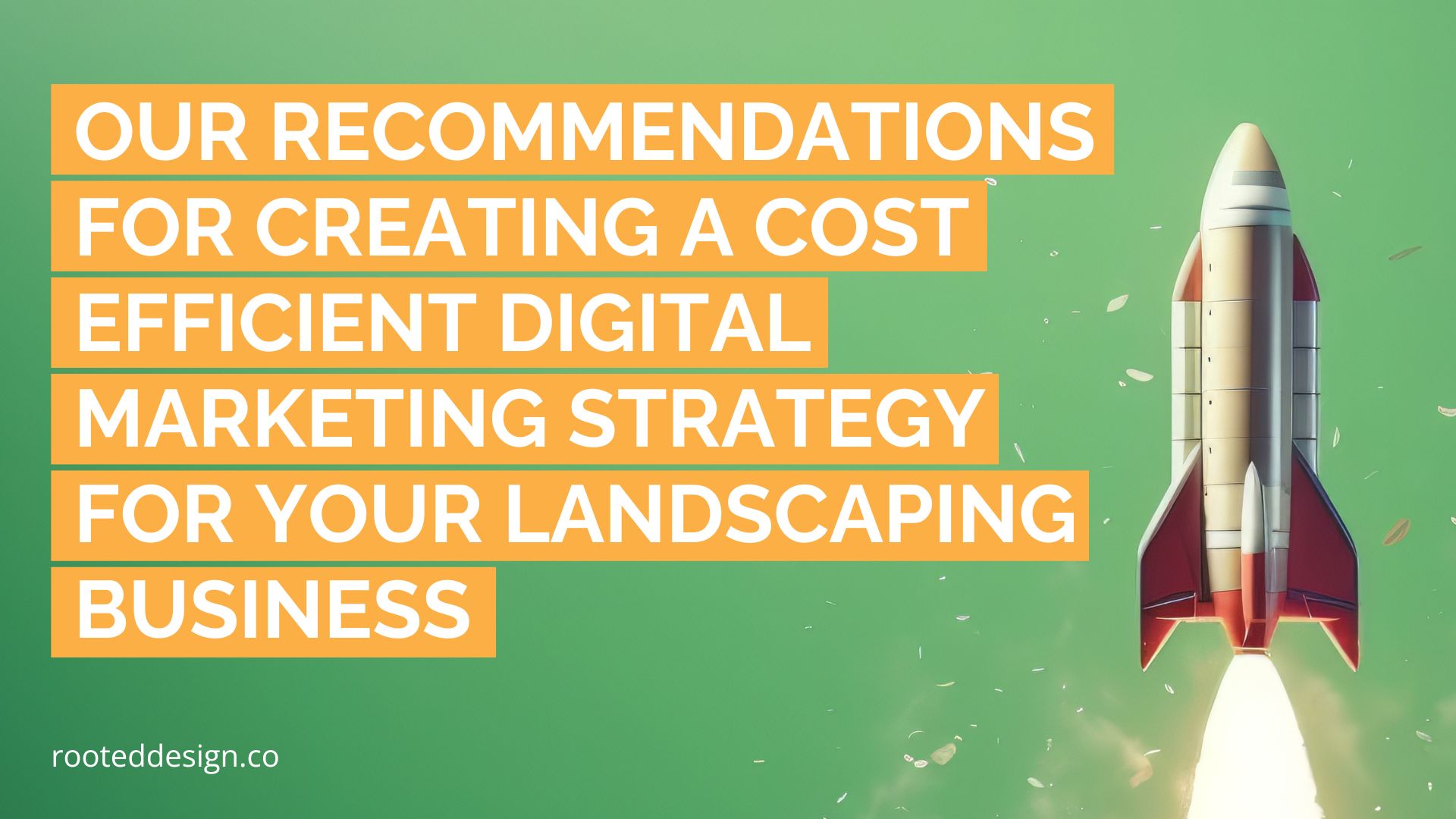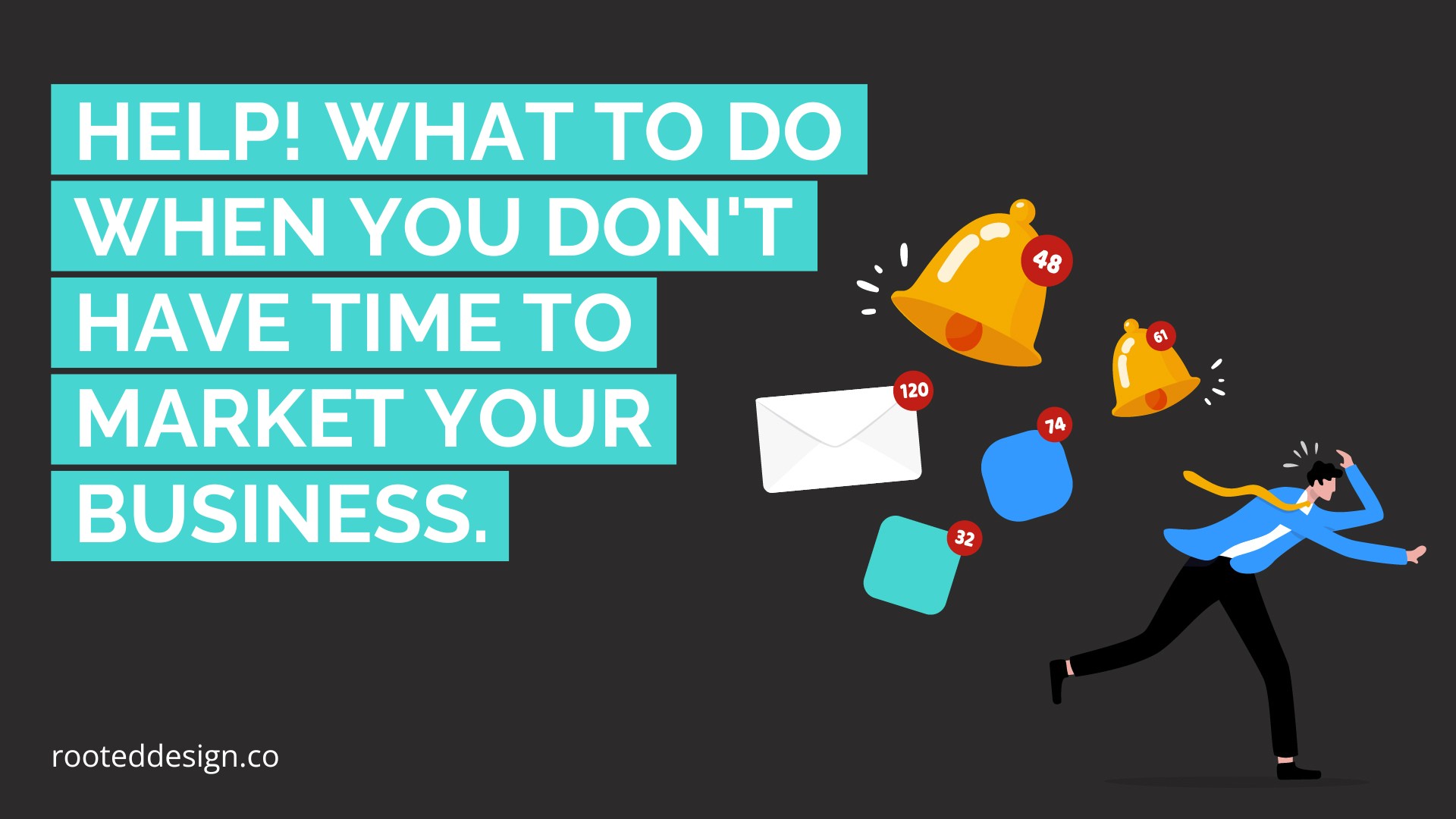Are you looking to expand the reach of your landscaping business and attract more potential clients? In today’s digital age, having a robust online presence is crucial for business growth. Creating a cost-efficient digital marketing strategy can help your landscaping business stand out and reach your target audience effectively.
In a highly competitive industry like landscaping, understanding your target audience and potential customers is essential. By establishing a strong online presence through website optimization, Google Ads, and social media marketing, you can increase brand awareness and attract potential clients. Additionally, creating relevant and engaging content, such as a content marketing strategy and email campaigns, can help you connect with your audience and encourage positive online reviews.
In this article, we will discuss our recommendations for creating a cost-efficient digital marketing strategy for your landscaping business. From understanding your target audience to leveraging digital strategies for improved conversion rates, we will cover essential steps to help you enhance your online presence and attract more clients.
Understanding Your Target Audience and Potential Customers
Understanding Your Target Audience and Potential Customers
Knowing who needs your landscaping services is crucial for your business’s success. Think of your target audience as the group of people most likely to hire you for lawn care, maintenance, or design.
Here’s why they matter:
- Focused Marketing: Tailored messages resonate better. You save money by only reaching those interested in landscaping.
- Better Service Offers: Understand their needs and offer solutions that fit, like seasonal lawn care or eco-friendly options.
Quick Tips to Identify Your Audience:
- Evaluate Current Customers: Who are they? Residential homeowners, businesses, or both?
- Consider Local Demographics: What’s common in your area—spacious yards, commercial plazas, or public parks?
- Check Competitors: See who’s hiring them and why.
- Social Listening: Monitor local online forums and social channels for landscaping mentions.
Your Potential Customers’ Traits:
| Budget-Conscious | Property Proud | Eco-Friendly |
|---|---|---|
| Look for deals | Invest in aesthetics | Prefer sustainable options |
By understanding your audience, you can craft precise marketing messages, offer relevant services, and ultimately, grow your landscaping business with the right clientele.
Establishing a Strong Online Presence
Creating a cost-effective digital marketing strategy for your landscape business starts with establishing a strong online presence. This acts as the foundation for all your digital strategies, allowing potential clients to discover and engage with your services.
Showcasing Past Projects: Your website should be a portfolio, displaying high-quality images of past landscaping endeavors. This visual proof of your expertise encourages trust and can influence a visitor’s decision to become a customer.
Customer Reviews: Positive reviews from happy customers are essential. They serve as social proof that can sway potential customers in your favor. Ensure that your website highlights these testimonials and make it simple for satisfied clients to leave feedback.
Connect Through Social Media: Identify which social media platforms your target audience frequents and establish a presence there, ensuring consistency in your messaging across all channels.
Remember, an online presence isn’t static; it requires ongoing attention and should evolve as your business grows. Keep the website fresh with current projects and reviews, and stay active on selected social media platforms.
Optimizing Your Website with SEO
Search Engine Optimization (SEO) is a critical component of a cost-efficient digital marketing strategy for landscaping companies. Here’s why it’s critical:
- Local Visibility: SEO helps you rank higher on search engines, making it easier for potential customers in your area to find you.
- Trust and Credibility: Websites that appears on the first page of search results are often perceived as more trustworthy.
Start with the Basics:
- Include keywords related to lawn care services throughout your site’s content.
- Make sure your site is mobile-friendly, as search engines favor responsive designs.
- Ensure fast loading times; site speed affects both SEO and user experience.
For a deeper dive into SEO specifically for service-based businesses like landscaping, visit our article: 10 Local SEO Tips for Service-Based Businesses.
Utilizing Google Ads for Maximum Exposure
Google Ads can be a game-changer for your landscape business, giving you the ability to appear at the top of Google searches quickly. Here’s how it benefits you:
- Immediate Visibility: Unlike SEO, which can take time, Google Ads offers instant exposure.
- Targeted Advertising: Focus your ads on the audience most likely to engage your lawn care services.
- Controlled Budget: Pay only for clicks you receive, allowing for a flexible advertising budget.
Start with a small budget to test which ads resonate with your audience and refine your strategy for maximum return on investment.
Leveraging Social Media Marketing for Brand Awareness
Social media is a powerful tool in your digital marketing arsenal, allowing you to showcase the personality of your lawn care business and connect with potential customers on a personal level.
Visual Appeal: Post before and after photos, and videos of your team at work. This not only demonstrates your capability but also humanizes your brand.
Engagement: Encourage interaction by posing questions, hosting contests, and sharing relevant content to your client base, likely interested in maintaining beautiful outdoor spaces.
When used effectively, social media marketing can significantly boost your brand awareness and help build a loyal community around your landscaping services.
Creating Relevant and Engaging Content
Landscaping companies can position themselves as trusted experts by offering valuable landscaping tips and knowledge that cater to their potential clients’ searches. Whether it’s explaining how to maintain a lawn in the summer heat or highlighting the importance of seasonal planting, presenting this information fulfills the informational needs of your target audience. This approach not only builds trust but also ensures that your content aligns with what your audience is looking for online.
By consistently creating and sharing relevant content, your business naturally attracts customers who are interested in landscaping services. This content can range from instructive blog posts to insightful infographics about lawn care, targeting common queries and interests, all designed to engage your readers and encourage them to explore your services further.
Developing a Content Marketing Strategy
A content marketing strategy is a plan for building an audience by publishing, maintaining, and spreading consistent and relevant content that educates, entertains, or inspires to turn strangers into fans and fans into customers. To develop a sound strategy, you need to define clear goals, understand your target audience, and determine how to best reach them.
For landscaping companies looking to craft a strategy, here’s where to start:
- Research: Identify what your target audience is searching for regarding landscaping. Tools such as Google Trends, Answer the Public, or keyword research tools can provide insights into popular search queries.
- Content Plan: Decide on the types of content (blog posts, social media updates, email newsletters, etc.) and topics (landscaping tips, seasonal advice, project showcases) that will resonate with your audience.
Remember, you can write one piece of compelling content and repurpose it across all marketing channels. For example, a detailed guide on preparing your lawn for winter can become a blog post, condensed into a social media thread, and included in an email campaign.
Engaging with Potential Clients through Email Campaigns
Email campaigns present a direct line of communication with your target audience, allowing you to build trust and provide ongoing value. For a landscaping business, leveraging email to remind customers about seasonal lawn care needs is an excellent way to stay on top of their minds throughout the year.
Your email content can include:
- Seasonal Tips: Provide useful information that will help your clients prepare their landscapes for the coming season.
- Exclusive Offers: Reward subscribers with special discounts or early access to new services.
- Educational Content: Share your blog posts or video tutorials that can help customers solve common landscaping issues.
These tailored messages create a sense of community and keep your brand relevant, reminding clients that your services are essential year-round.
Encouraging Positive Online Reviews and Utilizing Them in Marketing
Online reviews play a critical role in enhancing your business’s credibility and search engine optimization. Positive reviews are influential; they provide prospective clients with the confidence to choose your services over competitors. However, all reviews, whether positive or negative, contribute to boosting your SEO, as they increase the amount of unique content related to your business, which search engines value.
To make the most of reviews:
- Showcase Them: Feature positive reviews prominently on your website and in social media posts.
- Respond: Engage with all reviews by thanking your customers or addressing concerns. This demonstrates commitment to customer satisfaction.
- Encourage Feedback: After completing a job, ask clients to share their experiences online, making the process as seamless as possible.
Table: Quick Guide to Leveraging Reviews in Marketing
| Action Item | Description |
|---|---|
| Collect Reviews | Request feedback from customers post-service via email or SMS. |
| Respond and Engage | Reply to all reviews to show customers you value their input. |
| Highlight Positive Stories | Use uplifting reviews in marketing materials and on social media. |
| Learn from Criticism | Address negative feedback and adjust business practices if needed. |
List: Ways to Promote Customer Reviews in Your Business
- Add a review section to your website.
- Share glowing testimonials on your social networks.
- Include a ‘Review’ call-to-action in your email signature.
- Use post-service satisfaction surveys.
By following these guidelines, landscaping businesses can establish an engaging content marketing strategy that drives interest, builds trust, and attracts a loyal customer base, all while being mindful of cost efficiency.
Leveraging Digital Strategies for Improved Conversion Rates
To effectively increase conversion rates for your landscaping business, incorporating social proof on your website is a crucial step. This involves showcasing reviews, testimonials, or case studies that highlight the satisfaction and results enjoyed by past customers. Using persuasive call-to-action (CTA) language can also prompt website visitors to act, whether it’s to schedule an appointment, sign up for a newsletter, or request more information.
Marketing automation is another powerful tool that can help personalize the user experience and nurture leads through their journey to becoming customers. By automating follow-up emails, birthday specials, seasonal discounts, or reminders for lawn care, you can consistently engage with potential clients without increasing your workload.
Analyzing Digital Channels and Marketing Strategies
It’s essential to review your website analytics to understand where visitors are spending their time. Heatmaps, click-tracking, and other analytical tools can identify hotspots of engagement or areas needing improvement. This data can inform decisions on where to place CTAs, how to structure your content, and which services to highlight.
Moreover, identifying your target audience’s preferred social media channels is critical. Concentrating efforts on platforms where your potential clients are most active ensures more effective communication and community-building. For a landscape business, visual platforms like Instagram or project-sharing sites like Pinterest could be particularly effective.
Utilizing Data to Optimize Your Online Marketing Strategies
Data-driven insights are invaluable for informing digital marketing strategy. Regularly measuring the performance of each initiative allows for ongoing refinement. For instance, if you notice that Google Ads result in a higher number of qualified leads compared to organic search, you might choose to allocate a larger portion of your budget to PPC campaigns.
A digital marketing roadmap will articulate strategic goals and set clear priorities. It helps align team members and provides a framework for tracking progress. A robust strategy document will outline sequences and timelines for implementations, while a well-maintained plan will highlight the need for consistent updates to keep the business relevant and easily discoverable online.
Table: Essential Components of a Digital Marketing Roadmap
| Elements | Description |
|---|---|
| Objective Setting | Defining clear, measurable goals for the digital marketing strategy. |
| Priority Alignment | Determining which tactics take precedence based on impact and resources. |
| Timeline Coordination | Scheduling and sequencing initiatives for optimal implementation. |
| Performance Tracking | Using analytics to assess the effectiveness of each strategy. |
| Adjustments and Refinement | Making data-informed changes to optimize ongoing efforts. |
List: Steps to Ensure an Optimized Digital Marketing Plan
- Set up a recurring schedule for reviewing website and campaign analytics.
- Reassess and adjust your PPC campaigns based on conversion data.
- Align content creation with insights on trending topics and keywords.
- Regularly update your social media strategy based on engagement metrics.
- Keep track of SEO changes and adjust your online content accordingly.
By structuring your digital marketing efforts around these data-driven strategies, your landscape business can consistently reach the right audience, engage potential clients, and turn those engagements into valuable conversions.



